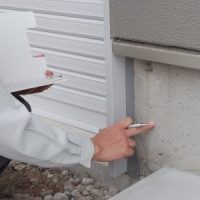What To Do if a Seller Fails To Disclose Defects in Tennessee

Purchasing a property is one of the most exciting things in life. However, this excitement can be cut short if you discover serious issues the seller failed to disclose, such as roof leaks, foundation issues, or mold. Unfortunately, while sellers are legally obligated to reveal material defects, some do not share this information with buyers. While some sellers do not withhold this information intentionally, some knowingly conceal defects to avoid scaring off potential buyers or lowering the sale price. If a seller fails to disclose material defects, the buyer might be left dealing with unexpected repairs or safety issues. Fortunately, you may have options if you are dealing with undisclosed defects.
Tennessee Disclosure Requirements
Tennessee Code Annotated § 66-5-201 et seq. mandates most residential real estate sellers to provide potential buyers with a disclosure statement. This document informs the buyer of the condition of the property. It outlines any known defects with the property. According to the law, sellers are required to disclose issues, including;
- Previous flooding or environmental hazards, such as sinkholes
- Sewer line defects
- Structural or foundational issues
- Termite damage
- HVAC system failures
- Electrical or plumbing issues
If a seller fails to disclose a known material defect, and you discover it, you may have legal recourse.
What Is a Material Defect?
A material defect is any issue with a system or component of a property that may significantly or adversely affect the property’s value, functionality, or safety, and that would likely influence a buyer’s decision in the transaction. Examples of material defects include;
- Foundation cracks
- Faulty electrical wiring
- Water or mold damage
- Termite infestations
Cosmetic defects such as chipped paint or a squeaky door may not qualify as material defects.
The Importance of Inspections
An inspection is a vital step in the property-buying process. A professional inspection can provide an unbiased opinion on the property’s condition. It can help a buyer uncover issues the seller might have missed or failed to disclose. If you discover issues with the property, you can use the report to negotiate repairs or a reduced price. The report can also be vital evidence if you end up pursuing legal action.
What To Do if a Seller Fails To Disclose Material Defects
Here are the steps to take if you discover that a seller failed to disclose a serious problem;
- Document the Defect(s)
Keep detailed documentation of the issue(s). Save any inspection reports describing the defect(s) and repair estimates.
- Talk to the Seller
You can start by contacting the seller and trying to resolve the issue informally. They may be willing to pay for repairs or negotiate a settlement to avoid legal trouble.
- Talk to a Real Estate Attorney
Contact a Tennessee real estate attorney if the seller refuses to take responsibility. An attorney can help you determine the best way to proceed.
- Consider Legal Action
If informal resolutions fail, you may consider filing a lawsuit. In Tennessee, buyers can seek damages, including repair costs, when sellers fail to disclose known material defects.
Contact a Knoxville Real Estate Attorney
If a seller failed to disclose a known defect with a property, contact an experienced Knoxville real estate attorney at Reynolds, Atkins, Brezina & Stewart PLLC for legal guidance.
Source:
advance.lexis.com/documentpage/?pdmfid=1000516&crid=26be372a-bce6-4112-aba9-4bdf006d6d01&pdistocdocslideraccess=true&config=025054JABlOTJjNmIyNi0wYjI0LTRjZGEtYWE5ZC0zNGFhOWNhMjFlNDgKAFBvZENhdGFsb2cDFQ14bX2GfyBTaI9WcPX5&pddocfullpath=%2Fshared%2Fdocument%2Fstatutes-legislation%2Furn%3AcontentItem%3A4X67-XV90-R03M-H407-00008-00&pdcomponentid=234180&pdtocnodeidentifier=ACOAAFAACAAB&ecomp=h2vckkk&prid=c17bd015-95c6-4261-822f-d05cc4ecd95a
